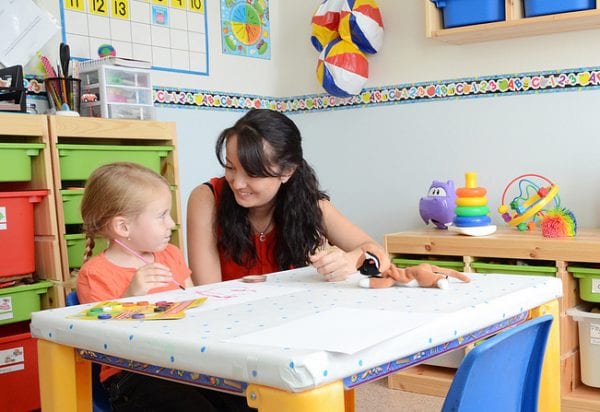It’s hard to get recognised for dedicating your life to the care sector when it comes to national honours, a point that is clearly evident in the 2024 Australia Day honours list.
A much more likely approach to receiving such accolades is to pursue services to ‘business’ to ‘law’ and even to the “Anglican Church”.
For the second year in a row, a slightly higher number of women than men have been recognised in the general division of the Australia Day honours list, at 50.5 per cent. This continued progress is welcome. But at this rate, we still have decades ahead before the overall gender gap in who has been recognised since 1975 closes altogether.
Analysing words used in describing the services offered by the 739 Australians to be recognised this year, the word ‘care’ rarely comes up.
According to this analysis of the description fields, just one Australian has been celebrated for their work in childcare, with Louise Maiden receiving an award for her services to primary and early childhood education.
Just two have ‘aged care” in their award description, including Deborah Parker, a registered nurse specialising in aged care now pursuing vital research work on palliative care for older people Not one recipient has the term ‘disability care’ in their award description, although there are others who have received recognition for their disability advocacy work, including Ellie Cole.
To put these figures in perspective, it helps to consider some of the more prominent areas highlighted.
There are 36 individuals with ‘business’ in their award description. Another 25 have the word ‘law’ in their description, while 13 mention ‘media’. Science is also highly represented, with 26 mentions.
There are twelve mentions of ‘church’, with ‘Anglican Church’ dominating this list with five mentions.
While there are 76 recipients with the word ‘education’ in their award description, with most of their work being in academia or in offering education services to key industries – rather than in primary or second education, or in early childhood education.
One mention of childcare was the same as one mention of ‘for service to lawn bowls’.
The word ‘care’ is only mentioned eight times across the list of 700 plust Australians recognised, mostly this is related to healthcare.
Overall, and as with previous years, the majority of the awards have been given for services to the Community, at 310, followed by medicine at 77, and then sport and leisure, at 58.
It should be noted that some recognition in this year’s list for supporting and advocating for key communities — such as multicultural communities, Indigenous communities and migrant communities — may not carry the word ‘care’ in the description of services but would incorporate care, including Dr Sabrin Farooqui, who we spoke to on her own a Medal of the Order of Australia (OAM) for her services to community and multicultural affairs. There is also great work recognised in areas like reproductive rights and human rights.
None of the above is shared to suggest that those receiving awards for services to areas like business and law shouldn’t be recognised. Far from it.
Rather, sharing these figures highlights the opportunity for more diversity — among both the individuals nominated and ultimately recognised, as well as in recognising and celebrating the different types of work people do.
There is clearly a great opportunity to celebrate better and acknowledge the work of those in care-related fields: disability care, childcare, aged care, as well as primary and secondary school teaching.
Better recognising individuals for their work in care will not only grant them the recognition they deserve, but it will also go a long way in building up how we generally value anyone who works in these fields.
Plus, getting care work better recognised will have the inevitable affect also of seeing the overall proportion of women recognised going up too, given women still make up the overwhelming majority of those working in these fields.
Governor General David Hurley says there is a priority in ensuring the Order reflects the diversity of our community.
He said that “work continues to increase nominations for outstanding individuals from parts of our community that have been historically underrepresented, including women, people from culturally and linguistically diverse backgrounds and Aboriginal and Torres Strait Islander peoples.
An approach to doing the above could and should include looking areas of ‘service’ that are underrepresented in these awards.


